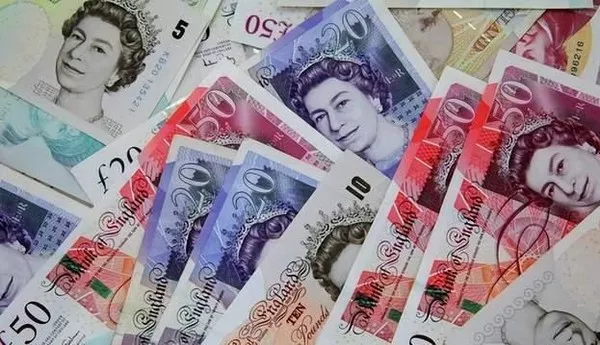The Bank of England will further tighten policy, and the pound is expected to continue to rise.
Andrew Bailey assured that UK inflation will slow to 5% in October.
One-year UK consumer inflation expectations and wage growth have slowed rapidly.
As market sentiment begins to recover and the Bank of England (BOE) announces a hawkish interest rate decision, the pound (GBP) seeks to hold above $1.2700, extending this recovery. GBP/USD was poised for more gains after the Bank of England raised interest rates by 25 basis points to 5.25%, the highest level in the past 15 years. The central bank has left the door open for further policy tightening as inflation remains far from the ideal level of 2%.
Andrew Bailey has assured that UK inflation will fall back to 5% in October as food inflation appears to have peaked. And stubborn services inflation could keep it going. Meanwhile, the central bank’s aggressive rate-tightening cycle has fueled recession fears, as the housing sector and factory activity will come under more pressure.
Daily Market Update Summary:
Sterling benefits from hawkish BoE policy
GBP managed to hold above 1.2700 after a decent bounce as risk appetite improved among market participants and BoE Governor Andrew Bailey left the door open for further tightening.
On Thursday, the Bank of England raised interest rates by 25 basis points to 5.25% to increase pressure on stubborn inflation. It was the 14th consecutive rate hike in the UK.
On the nine-member Monetary Policy Committee (MPC), BoE policymaker Swati Dhingra favors a steady interest rate policy. The Bank of England’s Haskell and Mann backed a 50 basis point hike.
Andrew Bailey said there was no option for a 50 basis point hike and the central bank would keep rates “restrictive enough” for “long enough time” for inflation to return quickly to 2%.
Bank of England Deputy Governor Ben Broadbent, in support, said keeping interest rates relatively high for an extended period of time was key to cutting inflation.
On the outlook for inflation, Andrew Bailey sees inflation falling to 5% by October.
UK Chancellor of the Exchequer Jeremy Hunt said it was encouraging that the Bank of England believed Prime Minister Rishi Sunak would deliver on his pledge to halve inflation.
Elsewhere, a Citibank/YouGov survey showed that forward 12-month consumer inflation expectations fell sharply to 4.3% from a previous estimate of 5.0%.
The main catalysts behind the rise in UK inflation are labor shortages and sticky food inflation.
Andrew Bailey believes that food and beverage inflation appears to have peaked, while continued strength in service price inflation may indicate that high inflation is here to stay.
A panel of policymakers surveyed July 7-21 pointed to a slowdown in prices charged and wage distribution by businesses. Wage growth for the year ahead slowed to 5.0% in July from 5.3% in June.
The risk-off theme weakened as investors digested Fitch’s downgrade of the U.S. government’s long-term debt rating.
The U.S. dollar index (DXY) pulled back after facing a tough wall around 102.80 as investors remained cautious ahead of the U.S. non-farm payrolls (NFP) data.
The U.S. dollar was on a strong note on Thursday as services sector purchasing managers’ index (PMI) fell short of expectations and labor cost growth slowed more than expected.
Factor orders, on the other hand, came in better than expected and the May reading, pointing to a pick-up in the manufacturing PMI.
Regarding the Federal Reserve’s (FED) interest rate guidance, Atlanta Fed President Raphael Bostic (Raphael Bostic) believes that there is no need to raise interest rates in September.


